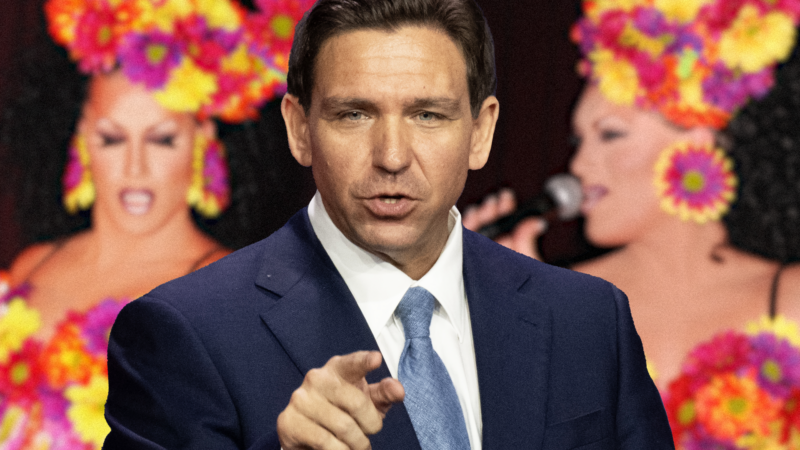
On Friday, a federal judge in Florida blocked a law preventing minors from attending drag shows, ruling that the statute violated the First Amendment rights of an Orlando-based restaurant. While attempts at banning or restricting access to drag performances have swept local governments and state legislatures, most have failed to pass legal muster.
In May, Florida Governor Ron DeSantis (R) signed Senate Bill 1438 into law. The bill prohibited "any person from knowingly admitting a child to an 'adult live performance.'" Violating the law was a misdemeanor offense, and offending businesses could be fined and have their licenses revoked.
The bill defines an "adult live performance" as "any show, exhibition, or other presentation in front of a live audience which, in whole or in part, depicts or simulates nudity, sexual conduct, sexual excitement." The statute also prohibits exposing minors to "lewd conduct or the lewd exposure of prosthetic or imitation genitals or breasts" when it "predominantly appeals to a prurient, shameful, or morbid interest"; is offensive to prevailing standards of "suitable material or conduct for the age of the child present"; and when "taken as a whole, is without serious literary, artistic, political, or scientific value for the age of the child present."
The same month, the owners of Hamburger Mary's, a restaurant in Orlando, Florida, that frequently hosts drag events (including "family-friendly" drag performances), filed a lawsuit challenging the law. The suit alleged that the new law "seeks to explicitly restrict, or chill speech and expression protected by the First Amendment based on its content, its message, and its messenger." Further, Hamburger Mary's argued that the law was unconstitutionally vague and overbroad.
On Friday, a federal judge agreed, granting a preliminary injunction preventing enforcement of the law. Judge Gregory A. Presnell of the Middle District of Florida ruled that the statute was unconstitutionally vague, leaving the definition of terms like "lewd conduct" unclear, leading to uncertain law enforcement. Further, Presnell ruled that the restriction was "facially content-based," noting that "it does not restrict the attendance of children from all live performances, only those engaged in the portrayal of a specific, enumerated subset of content."
While laws attempting to shield children from content that is not obscene to adults, but would be obscene to minors, can be constitutional if narrowly tailored, Presnell notes that the Florida statute wasn't appropriately narrow and "does not allow for the exercise of parental discretion, stating plainly that '[a] person may not knowingly admit a child to an adult live performance,' explicitly foreclosing any defense based on a 'bona fide belief of a child's consent.'"
"Plaintiff contends that its fifteen years of incident-free, harmless drag shows demonstrates the absence of any substantial harm to Defendant or to the public interest," concluded Presnell. "Moreover, existing obscenity laws provide Defendant with the necessary authority to protect children from any constitutionally unprotected obscene exhibitions or shows."
This ruling is the latest in a series of legal orders striking down or blocking anti-drag legislation. While attempts to ban drag are increasingly popular, federal judges have consistently ruled that these performances, as well as other adult performances, are almost always protected by the First Amendment.
The post Federal Judge Blocks Florida's Anti-Drag Law appeared first on Reason.com.







